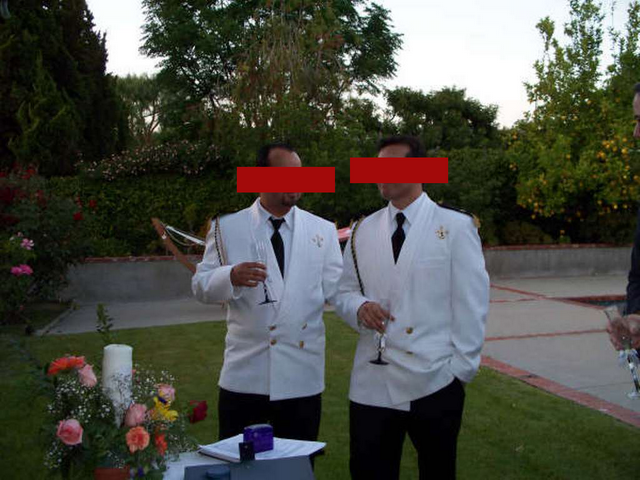A Houston immigration judge has allowed a gay Costa Rican immigrant to stay in the U.S. based on his same-sex marriage to an American — which LGBT advocates say is a first in Texas.
The Houston Chronicle reports that Judge Richard Walton on Thursday closed a deportation case against David Gonzalez, an accountant who’s been fighting to stay in Texas with his husband, U.S. citizen Mario Ramirez, since last year.
Gonzalez and Ramirez, who’ve been together for more than six years and live near the Houston suburb of Humble, were married in California in 2008 — during the brief window when same-sex marriage was legal there. But Gonzalez has overstayed his tourist visa, and because of the federal Defense of Marriage Act, he cannot apply for a Green Card based on the couple’s marriage.
Steve Ralls, a spokesman for Immigration Equality, notes that the outcome is consistent with other recent cases involving same-sex couples across the country — including high-profile ones in California and New Jersey. Last August, the Obama administration announced it would focus on high-priority immigration cases involving public safety concerns — a move which benefited same-sex couples where one partner is facing deportation. From the Chronicle:
Gonzalez said he left Costa Rica in Spring 2000 on a tourist visa to escape an abusive ex-lover. More than six years ago, he met Mario Ramirez, a U.S. citizen, whom he calls his “soulmate.”
The couple married in Los Angeles in 2008, during the brief period that same-sex marriage was legal in California. They moved to Texas, bought a home near Humble, and started talking about adopting children.
The closure of Gonzalez’s case means that the government is no longer seeking to deport him, but he still has no legal right to work in the United States.
“It is definitely good news that the administration is beginning to drop deportation proceedings, but now the individuals who are spared from deportation need to be able to receive that legal recognition that is so important as they continue to build a life here with their U.S. citizen partners,” Ralls said.















Wonderful news, congrats guys 🙂
I am so happy to see this. So many gay couples (myself included!) have sacrificed just about everything to be with the one they love. It is about time!